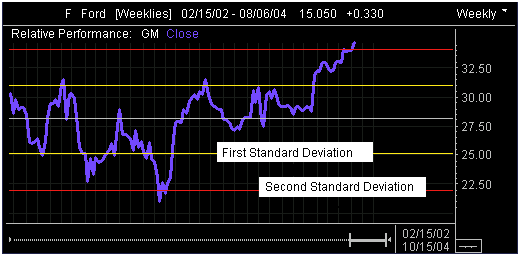Commodities Futures Definition and How They Work
Post on: 24 Апрель, 2015 No Comment

Commodities futures are an agreement to buy or sell a commodity at a specific date in the future at a specific price. Just like the price of bananas at the grocery store, the prices of commodities change on a weekly or even daily basis. If the price goes up, the buyer of the futures contract makes money, because he gets the product at the lower, agreed-upon price and can now sell it at the today’s higher market price. If the price goes down, the futures seller makes money, because he can buy the commodity at the todays’ lower market price, and sell it to the futures buyer at the higher, agreed-upon price.
Of course, if commodities traders had to actually deliver the product, very few people would do it. Instead, they can fulfill the contract by delivering proof that the product is at the warehouse, by paying the cash difference, or by providing another contract at the market price.
How Commodities Futures Affect the Economy
Commodities futures do a great job of accurately assessing the price of each commodity because since they are traded on an open market. Since they are futures contracts, they also forecast the value of the commodity into the future. The values are set by commodities traders and analysts, who spend all day every day researching their particular commodity. Of course, their forecasts are based on today’s information, so if North Korea suddenly tests a nuclear weapon. the commodities prices will change dramatically.
Most of the time, prices are an accurate reflection of market conditions. However, like any other traded item like stocks or bonds, commodities futures can reflect the emotion of the trader or the market as much as underlying fundamentals. Often speculators will bid up the price of a commodity to make a profit, especially if a crisis occurs and they anticipate a shortage. When other traders see that the price of a commodity is skyrocketing, they can create a bidding war and drive the price even higher. The basics, like supply and demand, haven’t changed. Then, when the crisis is over, the prices can plummet.
This happens most often to two popularly-traded commodities, oil and gold. In January 2013, oil futures prices started rising when Iran started playing war games near the Straits of Hormuz. Traders were worried that a potential closure of the Straits would limit oil supplies. For more, see What Makes Oil Prices So High?
In 2011, gold hit an all-time high of $1,895. Demand and supply hadn’t really changed, but traders bid up gold prices in response to fears of ongoing economic uncertainty. Gold is often bought in times of trouble because many people see it as a safe haven. For more, see Gold Prices and the U.S. Economy .

Other energy products include natural gas. heating oil and RBOB gasoline. Contracts are also written on other metals, such as copper, as well as other precious metals. such as silver and platinum. Commodities contracts are also written in many agricultural products, such as corn, wheat, and soybeans; so-called soft commodities, such as cotton, coffee and sugar, and livestock, such as live cattle and lean hogs .
Another important commodities category is Financials, which trade currencies such as the 3-month eurodollar and the euro-FX; interest rates on the 10-year Treasury note; and stock indices, such as the S&P 500. For more, see the Commodities Futures Trading Commission .
How to Invest in Commodities
The best way to either invest in or monitor commodities futures is through a commodities ETF or commodities mutual fund. These can give you a single number that takes into account the broad spectrum of commodities futures that are occurring at any given time, such as the GSCI. That’s because actually trading in commodity futures and options contracts is very complex and risky. Commodities prices are very volatile. and the market is rife with fraudulent activities. If you aren’t completely sure of what you are doing, you can not only lose all your money (like stocks) but you might also owe more even more to fulfill the contract. However, you want to invest in commodities anyway, please see About.com Guides to Commodities Profiles and Day Trading in Commodities Futures. Also, review the CTFC’s Guide to Fraudulent Activity and its Education Center.














